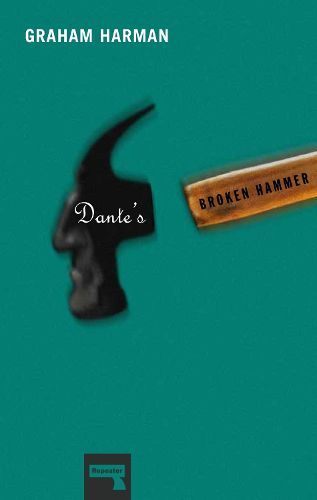Readings Newsletter
Become a Readings Member to make your shopping experience even easier.
Sign in or sign up for free!
You’re not far away from qualifying for FREE standard shipping within Australia
You’ve qualified for FREE standard shipping within Australia
The cart is loading…






In this book the founder of object-oriented philosophy transforms one of the classic poets of the Western canon, Dante Alighieri, into an edgy stimulus for contemporary continental thought. It is well known that Dante’s poetic works interpret love as the moving force of the universe: as embodied in his muse Beatrice from La Vita Nuova onward, as well as the much holier persons inhabiting Paradiso. Likewise, if love is the ultimate form of sincerity, it is easy to interpret the Inferno as a brilliant counterpoint of anti-sincerity, governed by fraud and blasphemy along with the innocuous form of fraud known as humor (strangely absent from all parts of Dante’s cosmos other than hell). In turn, the middle ground of Purgatorio is where Harman locates Dante’s clearest theory of sincerity. Yet this is only the beginning. For while Dante provides a suitable background for the metaphysics of commitment found in such later thinkers as Pascal, Kierkegaard, Sartre, and Badiou, he also provides even more important resources for overcoming two centuries of philosophy shaped by Immanuel Kant.
$9.00 standard shipping within Australia
FREE standard shipping within Australia for orders over $100.00
Express & International shipping calculated at checkout
Stock availability can be subject to change without notice. We recommend calling the shop or contacting our online team to check availability of low stock items. Please see our Shopping Online page for more details.
In this book the founder of object-oriented philosophy transforms one of the classic poets of the Western canon, Dante Alighieri, into an edgy stimulus for contemporary continental thought. It is well known that Dante’s poetic works interpret love as the moving force of the universe: as embodied in his muse Beatrice from La Vita Nuova onward, as well as the much holier persons inhabiting Paradiso. Likewise, if love is the ultimate form of sincerity, it is easy to interpret the Inferno as a brilliant counterpoint of anti-sincerity, governed by fraud and blasphemy along with the innocuous form of fraud known as humor (strangely absent from all parts of Dante’s cosmos other than hell). In turn, the middle ground of Purgatorio is where Harman locates Dante’s clearest theory of sincerity. Yet this is only the beginning. For while Dante provides a suitable background for the metaphysics of commitment found in such later thinkers as Pascal, Kierkegaard, Sartre, and Badiou, he also provides even more important resources for overcoming two centuries of philosophy shaped by Immanuel Kant.